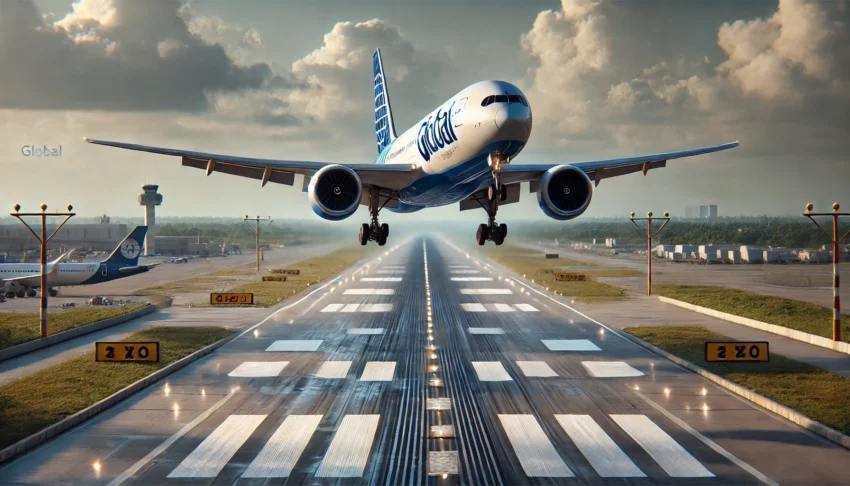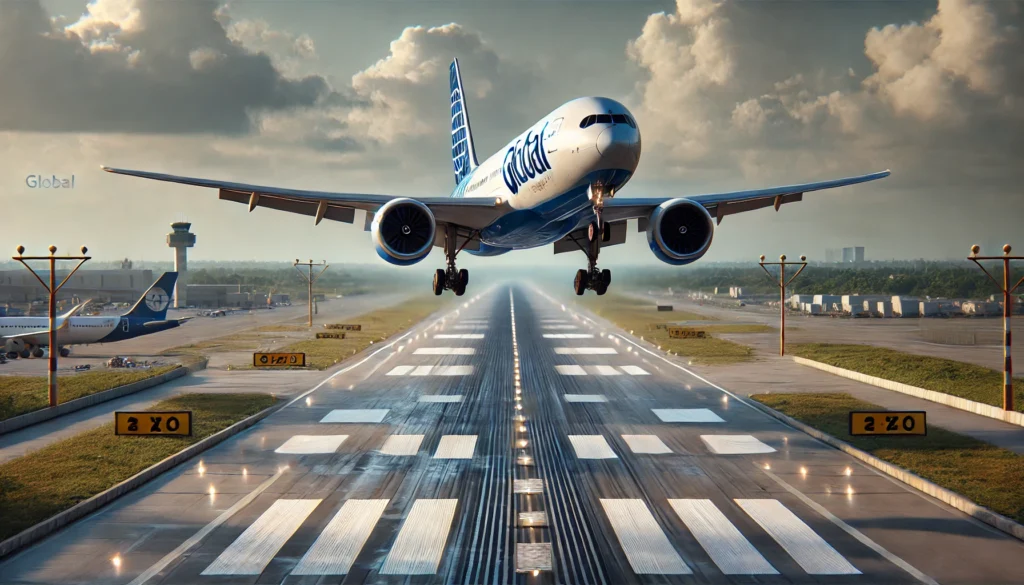Friday, May 16th, 2025

Global Airlines marked an important milestone as it operated its first Airbus A380 flight from Glasgow Airport (GLA) to JFK International Airport in New York on May 15, 2025. The event not only shows the bold driving forces of aviation innovation, but also a potential boost to tourism between Scotland and the United States.
This first A380 service from Glasgow led by entrepreneur James Asquith promises to redefine transatlantic travel by reviving the “golden age” with a new emphasis on passenger comfort, service excellence and spacious luxury. While ventures face competitive and challenging market conditions, flight success can ripple over the tourism sector on both sides of the Atlantic, promoting visitor growth and economic vitality.
Milestone Flight Reviving Transatlantic Tourism Ambitions
The maiden flight numbered on the HFM380 will depart from Glasgow in the morning and land at New York JFK at 1pm EDT. It marks the beginning of Global Aviation's ambitious plan to connect UK travelers to the US, and is a clear product that combines luxurious flight with modern aviation advances.
James Asquith, founder of global airlines and digital travel platform Holiday Swap, envisions the airline as a challenger brand aimed at enhancing the passenger experience.
With the Airbus A380, the world's largest passenger aircraft, Global Airlines offers a 506-seat three-class layout. First class 8, 70 in business, economy (brand “Global Traveler”). In particular, airlines will opt out of premium economy classes, maximize economy seating and offer travelers a unique option for upper deck economy seats.
By bringing the iconic two-storey A380 to Glasgow, a growing city for tourism and business travel, Global Aviation not only increases local connectivity, but also introduces Scotland as a major player in the global aviation and tourism market.
Economic and tourism impact: Increased regional connectivity and visitor spending
Glasgow Airport serves as a gateway to Scotland's tourist treasures. Historic sites, cultural festivals and natural scenery attract millions of people each year. The introduction of the direct A380 link to New York opens new opportunities for both inbound and outbound tourism.
For our visitors, the service simplifies access to Scotland, increases arrivals and extends extensions. On the return leg, Scottish travelers have won a premium route to New York, a top international destination known for their vibrant culture, commercial and leisure offerings.
Such connectivity could stimulate the local economy on both ends by encouraging hotel bookings, meals, retail and entertainment spending. Tourism Bureau can leverage the airline's unique product offering in its marketing campaigns to place Glasgow as an accessible premium destination.
Furthermore, the large capacity of the A380 supports group travel, practices and event tourism, which are very important for the urban economy. Increased flight frequency and reliable services could promote repeated visits and expand the tourism base.
Innovation meets nostalgia: the A380's tourism experience and role in market positioning
The choice of the Airbus A380 is strategic. Its spacious cabin and quiet ride meet the comfortable demands of modern travelers, consistent with expectations for the post-pandemic travel age.
Global Airlines aims to guide the spirit of the “golden age of travel” by providing a level of service to return to the days when air travel was famous for luxury. The flight experience includes unique economy seats on the upper deck. This is a rare thing that many passengers find attractive.
However, operations are not without compromise. The aircraft do not have Wi-Fi and traditional seatback entertainment systems. Instead, they rely on passenger devices for in-flight media. This highlights a cost-oriented approach that focuses on essentials and aircraft size rather than high-tech amenities.
This fusion of innovation and nostalgia can resonate well with a niche market for travelers seeking luxury with competitive pricing, distinguishing global airlines in the crowded transatlantic market.
Operational challenges and market reality
Despite the optimistic launch, Global Aviation faces important headwinds. The transatlantic market is extremely competitive, with legacy carriers such as British Airways and Virgin Atlantic being deeply entrenched, and demand for US holiday flights is currently weak.
Global Airlines currently operates four charter flights via third-party operator Hi Fly without a scheduled service permit or airport slot for regular flights. This limits passenger flexibility and limits sales to packages via Slough-based travel agency Travelopedia.
Industry insiders have expressed skepticism about the long-term viability of operating the A380, citing the aging costs of these large jets and the shrinking global market. Two A380s from the airline are second hand, one is 12 years old, previously stored in southern China and France at the other age of 16.
Such challenges suggest that current flights could serve as a demonstration for investors rather than immediate profit drivers. However, if the airline secures rights to scheduled services and is able to expand from Glasgow to London Gatwick to expand its future operations, it can establish a sustainable footing.
Marketing and Branding: Create unique travel proposals
James Asquith's vision draws out similarities with Richard Branson's Virgin Atlantic. This began in the 1980s with a focus on service innovation and youthful energy. Like Virgin's early days, Global Aviation is betting on its unique customer experience and a fresh approach to transatlantic flight.
The lack of premium economy reflects marketing decisions that simplify cabin delivery and target a wide range of segments in the economy and business class, perhaps in response to changing traveller preferences after the pandemic.
Branding's efforts highlight the vastness and exclusiveness of the A380, appealing to passengers tired of cramped jets. Airlines are actively promoting the Upper Deck Economy Experience as a unique selling point, helping to carve out a niche in the market.
Tourism marketers and destination managers may feel synergistic with this approach to attract new visitor segments and increase destination awareness using airline premium yet affordable transatlantic links.
The road ahead: growth outlook and tourism synergy
The future of global aviation relies on its ability to move from charter operations to regular scheduled services, expand its route network and build a loyal passenger base. The move to London Gatwick has opened up a wider market and increased operational flexibility.
As travel demand recovers globally, the airline's large and comfortable aircraft offerings can attract leisure tourists, business travelers and event attendees. It is the key driver of the tourism economy in both the UK and the US.
Collaboration with Tourism Bureaus, travel agents and local businesses is important to maximize the economic benefits of new routes. Integrated marketing campaigns that highlight convenience, service quality and destination appeal can help you build awareness and bookings.
Furthermore, global airline investments demonstrate confidence in the role of aviation as a catalyst for tourism-driven economic development, strengthening Glasgow's position as a competitive international gateway.
Key takeout
The global airline's first A380 flight from Glasgow to New York sets new standards for transatlantic tourism connectivity and luxury. The airline's focus on passenger comfort and unique cabin capabilities could boost visitor arrivals and economic activity on both sides of the Atlantic. The combination of the airline's brand strategy with nostalgic luxury is expected for long-term success.
Tags: Airbus A380, Edin Barra Tourism News, Europe, Glasgow, Global Aviation, Highfly, London Tourism News, New York City Tourism News, New York Tourism News, North America, Scotland Tourism News, UK, UK, US Tourism News



